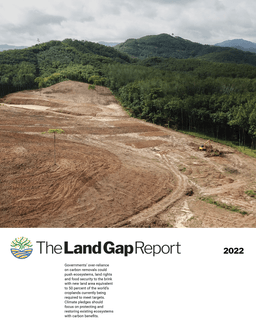Conservation assessment is a rapidly evolving discipline whose stated goal is the design of networks of protected areas that represent and ensure the persistence of nature (i.e., species, habitats, and environmental processes) by separating priority areas from the activities that degrade or destroy them. Nevertheless, despite a burgeoning scientific literature that ever refines these techniques for allocating conservation resources, it is widely believed that conservation assessments are rarely translated into actions that actually conserve nature. We reviewed the conservation assessment literature in peer-reviewed journals and conducted survey questionnaires of the authors of these studies. Two-thirds of conservation assessments published in the peer-reviewed scientific literature do not deliver conservation action, primarily because most researchers never plan for implementation. This research-implementation gap between conservation science and real-world action is a genuine phenomenon and is a specific example of the "knowing-doing gap" that is widely recognized in management science. Given the woefully inadequate resources allocated for conservation, our findings raise questions over the utility of conservation assessment science, as currently practiced, to provide useful, pragmatic solutions to conservation planning problems. A reevaluation of the conceptual and operational basis of conservation planning research is urgently required. We recommend the following actions for beginning a process for bridging the research-implementation gap in conservation planning: (1) acknowledge the research-implementation gap is real, (2) source research questions from practitioners, (3) situate research within a broader conservation planning model, (4) expand the social dimension of conservation assessments, (5) support conservation plans with transdisciplinary social learning institutions, (6) reward academics for societal engagement and implementation, and (7) train students in skills for "doing" conservation.
DOI:
https://doi.org/10.1111/j.1523-1739.2008.00914.x
Altmetric score:
Dimensions Citation Count:























